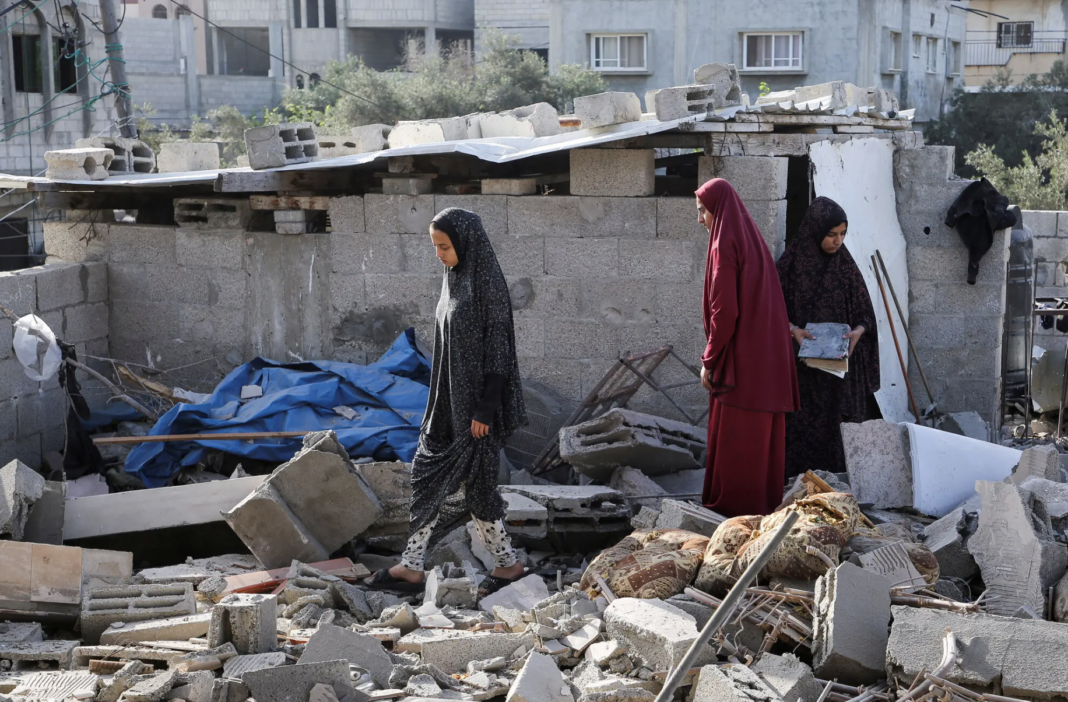Turkey’s decision to suspend trade with Israel underscores the rising global pressure to wind down the war in Gaza, even as Israel’s leaders insist that they will not end the campaign until Hamas’s rule in the enclave has been eradicated.
The New York Times, May 6, 2024, by Aaron Boxerman and Gulsin Harman
Israel’s international isolation has mounted as its devastating military offensive in Gaza continues, with little end in sight. Some countries have downgraded or cut ties with Israel. Close partners like the United States, Britain and Germany, while remaining strongly supportive of Israel, have become more openly critical of its conduct and of restrictions on humanitarian aid to Gaza.
Colombia this week became the second South American nation to break off ties with Israel, after Bolivia. On the day that Bolivia made its announcement, Colombia and Chile both said that they were recalling their ambassadors to Israel, and Honduras followed suit within days. Belize also cut diplomatic ties with Israel that month.
Arab states like Jordan and Bahrain, with whom Israel cooperates closely on security, have also recalled their ambassadors amid public outcry over the rising death toll in Gaza. The Israeli offensive has also hampered U.S.-led efforts to forge an agreement to normalize diplomatic ties between Israel and Saudi Arabia, which Prime Minister Benjamin Netanyahu of Israel hoped would be a major part of his legacy.
The Biden administration, Israel’s most important ally, has shown no sign of pulling back military support, even as it warns against an Israeli invasion of Rafah, in southern Gaza, where more than a million people are sheltering. And Israel won a reprieve this week when a United Nations court declined to order Germany, Israel’s second-biggest supplier of weapons, after the United States, to suspend those arms sales.
Still, the moves by Turkey and others highlight how the war in Gaza, now nearly seven months old, is exacting a growing toll on Israel’s global standing.
Israel and Turkey had enjoyed a rapprochement in recent years. In 2022, the two countries announced that they would restore full diplomatic ties. They already were close trading partners, with Turkey sending roughly $4.6 billion in exports to Israel in 2023, according to Israeli government statistics.
Just a few weeks before Hamas’s attack against Israel on Oct. 7, Mr. Netanyahu and Turkey’s president, Recep Tayyip Erdogan, met for the first time, in New York during the United Nations General Assembly meeting. The two leaders agreed to visit each other’s countries, Mr. Netanyahu’s office said at the time.
Now, however, hopes for warmer relations appear to have been dashed. After the Hamas-led assault on Israel, Mr. Erdogan quickly took a strong rhetorical tack in favor of the Palestinian armed group, which he called “an organization of liberation”; he met with Hamas leaders in late April, drawing further Israeli ire.
On Friday, Mr. Erdogan said the decision to suspend trade was an attempt to pressure Israel into reaching a cease-fire with Hamas. Both Israel and mediators like Qatar, Egypt and the United States are still awaiting Hamas’s response to a truce proposal presented this week. U.S. officials, including William J. Burns, the C.I.A. chief, who was in Cairo on Friday for talks, have blamed Hamas for the failure to reach a deal.
“We have one single goal, to force the Netanyahu administration which got out of control with the West’s unconditional military and diplomatic support, to a cease-fire,” Mr. Erdogan said in an address in Ankara on Friday. “Once the cease-fire is announced and adequate humanitarian aid is allowed into Gaza, that goal would be reached.”
The decision to shut down imports and exports with Israel is highly unusual for Mr. Erdogan, who has generally allowed close economic ties to flourish in the shadow of high political tension, said Gallia Lindenstrauss, an expert on Turkey’s foreign policy at the Institute for National Security Studies think tank in Tel Aviv.
Mr. Erdogan likely hoped to leverage the issue to stave off growing domestic frustration with his two-decade-long rule, as opposition leaders won a string of municipalities during local elections earlier this year, Ms. Lindenstrauss said. But there was also an attempt “to exploit Israel’s weakness, and specifically Netanyahu’s weakness, to continue to weaken Israel and gain regional influence,” she added.
Many of Israel’s closer allies are now calling for a cease-fire and the release of hostages held by Palestinian armed groups in Gaza. In March, the U.N. Security Council passed a resolution calling for a cease-fire in the Gaza Strip during the Muslim holy month of Ramadan.
The war has also prompted renewed calls by some countries to recognize a Palestinian state, a move that is largely symbolic but strongly opposed by Mr. Netanyahu. Spain and Ireland, among other European nations, have said that they are working toward recognizing a state of Palestine.
Washington has long said that while it backs the eventual establishment of a Palestinian state, any recognition should come after negotiations between Israeli and Palestinian leaders.
The shifting tone reflects the war’s tremendous cost for Palestinians. Over the past seven months, the war has killed more than 34,000 people in Gaza, most of them women and children, according to local health officials. Israel’s offensive followed the Hamas-led attack on Oct. 7 that left about 1,200 dead and another 250 taken hostage, according to Israeli officials.

